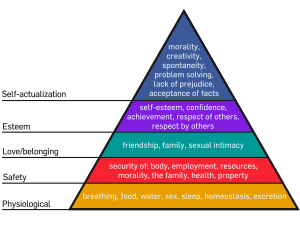I have three children: 13 (boy), 17 (girl), and 19 (boy). Over the years, I have experienced so many feelings about being a parent, and I have asked so many questions about whether I am doing it right. I am desperately trying to establish reasonable boundaries, set fair expectations, and show unconditional and never-ending love to my children. I don’t just love my children because they are my children, but because they are truly interesting, fun, and enjoyable people to be around. Still, they make mistakes. And in those moments, I question what I could have done differently? How could I have protected them from these mistakes? Is it a reflection of me, or my parenting? One minute they look like they have it all together, and the next they are caught fighting at school, not turning in their homework, or even worse…..” I know they are good people and I hope they embrace life with all their potential.
Does this sounds at all familiar? As parents, we want our children to be happy and we want them to reach their potential. We worry and we hope we are doing it right. It is important to recognize that parents play an important role, but they are not fully responsible. In reality, a teen’s motivation, or desire to instigate and sustain certain goal-directed behaviors, is often out of our control. Stay engaged by considering ways in which you can have influence, and paying attention to other people, activities, and contexts that help your teen meet his/her needs.
Abraham Maslow is a famous psychologist who believed that people are motivated by a series of needs, with some needs taking priority over others. His famous Hierarchy of Needs outlines five levels, each of which must be met before moving onto the next. His description of how people prioritize their needs can help explain what motivates teens to engage in certain behavior over others.
Maslow called the first four levels “deficit” needs because they represent voids that must be met in order to continue developing. In the final level, “self-actualization”, people have met all their deficits and can focus on growing as a person and developing their true potential. Self-actualized people are motivated by budding goals and desires for fulfillment.
It makes sense to say that a teen cannot work on developing a strong self-esteem if the basic needs of food, water, shelter, and physical and emotional safety are not being met. Similarly, without a strong self-esteem, it is difficult to be creative and fully accepting of yourself and others. It is important to recognize that teens are immersed in a variety of contexts that contribute to their development in each of the five levels. For example, while teens can gain a sense of love and belonging from family, they also need to feel like they are accepted as part of a peer group. As they move up the pyramid, teens continually set goals about who they want to be.
Importantly, who they want to be is impacted by how they see themselves. For example, it is easier to say “I want to get straight A’s this semester” when you see yourself as good at school, hardworking, and/or intelligent. Teens are more motivated when they think they can change, “I can get into the orchestra if I take lessons this summer.” And they are discouraged, or even quit trying, if they don’t think they can change. “I can’t be on the cheerleading team because I am not athletic.” You can also stretch your teens perceptions of themselves by helping them extend present behaviors into the future. For example, “Getting straight A’s will look great on your college application.” or “Trying out for cheerleading will help you get in shape and give you exposure to other sports you may like.” Helping teens reach their potential involves helping them set goals that stretch their current perceptions of themselves. It is moving them from a belief of “I am who I am” to “I can be who I want to be”. Below are some ways to apply Maslow’s Hierarchy of needs to our parenting:
- Pay attention. Consider how your teen’s behavior is related to a particular need they might be trying to meet.
- Do everything you can to make your home physically and emotionally safe
- Provide unconditional love and instill a sense of belonging in the family. A sense of belonging comes, in part, from being a contributing member. Find ways in which your teen can make an ongoing investment in the family.
- Learn about your teen’s peer group. Talk about what it means to belong to that group. Group norms and values are typically shared and can guide behavior. You want your teen to see the link between how the group defines itself and the activities/behaviors it engages in.
- Help your teen reach his/her potential. Emphasize your teen’s ability to make changes and control his/her future. Teach your teen to seek out the resources he/she needs to grow.
Related articles
- The Psychology of Twitter (psychologytoday.com)
- Maslow’s Hierarchy of Needs (reedsmassmedia.wordpress.com)

